Sara
******************************************************
MISC. INFORMATION:
- Sometimes adopted children try extra hard to be perfect for their adoptive parents.
They may wash over and over, worry a lot about dirty clothes.
They subconsciously feel they were not good enough for their birth parents.
They conclude this is why they were "given up." - Adoptive parents of 3-4 year olds (and up) have described this kind of situation.
"We could not believe our eyes. In the morning he awoke before us, dressed himself, pulled the covers back over the bed, folded his pajamas, brushed his teeth, washed his face and hands and sat quietly awaiting the day." - In many orphanages,children to be placed for adoption are separated from the children who are there under child protection services and who might be returned to birth parents.
Boys and girls live in different orphanages after age 5+. Siblings are often separated. - "I have seldom been outside. We have no real playground and no one to watch us when we are outside."
- "We had to stay in our cribs a lot for our safety and so we would not get lost." (They also share cribs most of the time with another child)
- "We had toys but we only were allowed to play with them at certain times of the day and then they were put away."
- "Consider that I have not been rocked, cuddled, played peek-a-boo with, laughed with or told nursery rhymes by anyone."
- Psychological research indicates that some (but not all) babies who are left unattended in their needs for food, warmth, comfort, touch and attention to their pain ... and who have no consistent caretaker, form a neurological signal system in their brain that in effect says: "No one cares, and I shall have to confront this world all by myself."
- It is said that parents who have chosen to adopt gain something wonderful:
They fulfill a dream, gain a child.
They make their family multicultural.
They experience a new kind of love, as do their children.
But they also lose:
They may lose the making of a child together.
They may lose the months of pregnancy with all its emotions and care by others. - In adoption, they lose being the American normative family, the expected "typical" family. They lose the possibility of a child who resembles them, carries their talents in the genes and carries on the family genes to a new generation.
- They may even subconsciously reject or over-protect their adopted child because of their own past experiences. Parents who have experienced miscarriages may steer their child away from any adventuresome activity because they might "lose" him/her.
- Parents who feel self-conscious that their adopted child is not really "theirs" may feel they cannot discipline their child. Parents who have waited long to be parents might make up for lost time by giving their child every possible toy and experience.
- DEALING WITH PREJUDICE:
- Adoption is not the cause of every problem. Parents, relatives, teachers, therapists and society in general can often see, blame, or look to adoption as the cause of all problems in a child's life. They may say, "Oh, She was adopted..." As parents, you may become sensitive to this prejudice and your sensitivity can help others as well as your child.
- How will you deal with the persons in your extended family or your friends who believe that "adoptive parents adopt to save poor little children, and therefore these children are lucky and should be forever grateful?"
- YOUR CHILD'S HERITAGE:
- Often the question arises, why should I continue to teach my child the heritage of her birth country? Many parents consider that their children are having a "hard enough" time assimilating all that the USA means without having to "keep up" on China or Colombia or wherever. The answer is, "this is who your child is..."
- As normally as you would want to continue to let your child draw or sing or dance if that were her special talent when she arrived, then, just as normally would you continue her culture.
- If you cut it off, you would be cutting off a part of who she is.
- They come to understand that children are not just Romanian or Vietnamese because they may "look" that way, but because they assimilated that culture before they were adopted.
- Prepare for the day when your child leaves home for college or work.
when she is no longer a child of your family's identity,
when he will be recognized as only Asian/Latin American /Indian
and will need extra support to meet this challenge.
- THE CHILD'S LOSS AND GRIEVING:
- Just as you may experience post adoption let-down, your child is experiencing a whole series of adjustments:
Everything is new, even my name
Nothing is the same.
Everyone has expectations about me
Everyone is looking at me
I am afraid to try all these new things and fail again
I lost my past, the only thing familiar to me
******************************************************
Pictures:
Many times, infants are strapped to potty chairs for hours at a time. I have read many people who have gotten 9 month old babies who are already potty trained. A friend of ours who adopted from China told us that her 9 month old baby would go to the bathroom every time she took her diaper off, but never in the diaper. Because she was used to going on the potty. Her baby has marks on her hips from where she was strapped to the potty chair.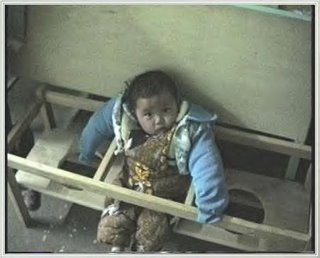
Rows and rows of baby bottles. The formula in China is said to be similar to sugar water. Not very nutritional.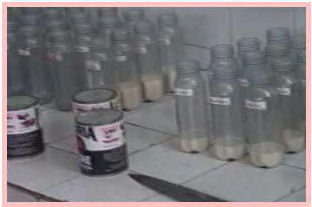
These babies get wooden cribs instead of the silver steel ones I have seen. This orphanage is very inviting compared to some. They even have mobiles!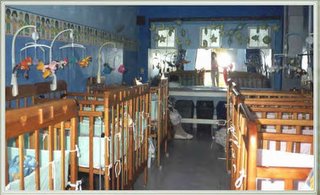
Toddler feeding time at an orphanage. So sad.








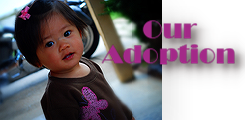




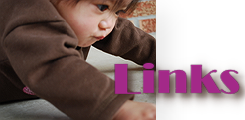


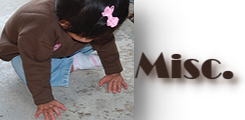







 Do not be afraid for I am with you. I will bring your children from the East and gather you from the West." ~God (Isaiah 43:5)
Do not be afraid for I am with you. I will bring your children from the East and gather you from the West." ~God (Isaiah 43:5)
No comments:
Post a Comment